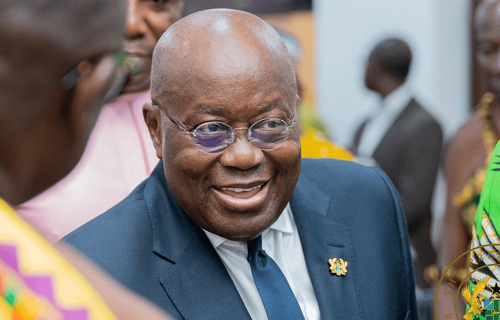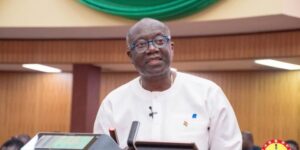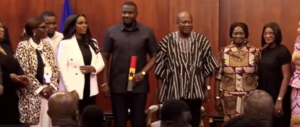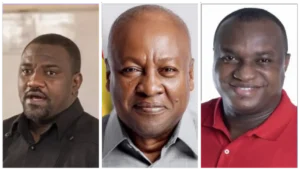The President of the Republic, Nana Addo Dankwa Akufo-Addo has urged media practitioners on the continent to deal with the burgeoning scourge of misinformation and its attendant effects across the African media landscape.
Describing such endeavour as fundamental to the social contract between the media and the public, he believes the media can use its great powers and responsibilities to evaluate and cure the challenges affecting the delivery of objective reportage.
According to him, with the African media standing at the crossroads of unprecedented challenges and opportunities whilst navigating through the complexities of a rapidly evolving digital age, the media’s role has become ever more critical, not just as a guardian of free expression, but also as a catalyst for sustainable development and innovation.
He noted that, as freedom of the press remains fundamental to the growth and development of every democratic society in Africa, we have witnessed a transformative shift towards greater media freedom over the last few decades.
“However, this freedom is not merely about the ability to speak or write freely. It is about the power to inform, to enlighten, and to mobilise society towards common goals. And here, I must emphasize the crucial need for the media to uphold not just accuracy, but integrity and ethical standards that respect the truth and the dignity of all individuals.”
President Akufo-Addo made this known when he spoke at the 3rd African Media Convention on the theme, “Enhancing Freedom, Innovation, and Environmental Sustainability in a Dynamic Media Landscape”, on Friday 17th May 2024, in Accra.
He told the gathering of media practitioners that, “though the Constitution of the 4th Republic of Ghana guarantees freedom of expression, including freedom of the press and other media, as a fundamental human right, and makes elaborate provisions to protect the freedom and independence of the media, the existing laws which were continued in force by the same Constitution, contained colonial laws on our statute books that were manifestly anti-libertarian, and repressive of free expression.”
It is in lieu of this, that “as Attorney General, under the government of the great Ghanaian statesman, His Excellency John Agyekum Kufuor, the 2nd President of the 4th Republic, I led the process, in Parliament, for the repeal of the Criminal Libel Law. The repeal, when it occurred, on 27th July 2001, was a very happy day for me, representing one of the high points of my public career.”
“The repeal has had a very positive impact on the development of the Ghanaian media, freeing it from unnecessary self-censorship, and promoting a robust and critical media culture. In the process, it has contributed to the growth of a vibrant media that has won Ghana the reputation of having one of the most media friendly and liberal climates on the continent. It has also contributed significantly to the deepening of democracy in our country, enhancing public accountability as a strategic goal of public policy.”
Aside expunging the libel laws, President Akufo-Addo has also overseen the enactment of the Right to Information Act, which successive governments could not pass because of the absence of the political will to do so.
Describing the RTI Act’s passage as a milestone in the country’s democratic journey which provides both citizens and the media with essential tools to contribute to a more open and accountable government, he said its “impact on media freedom is particularly noteworthy, as it has empowered journalists, improved the quality of reporting, and fostered a culture of transparency that benefits the entire society.”
President Akufo-Addo also used the occasion to call for more efforts to reverse climate change and the existential threat it poses to the planet and its way of life.
He urged the gathering to use their platforms and power to focus the world’s attention on the voices of those affected by climate change, especially in communities that are often overlooked in international discourse.
“Environmental sustainability should be at the heart of media practice. This means not only reporting on climate change, but also adopting sustainable practices in media production itself. From reducing carbon footprints to promoting recycling and sustainable energy use, there is much the media industry can do to lead by example.”






